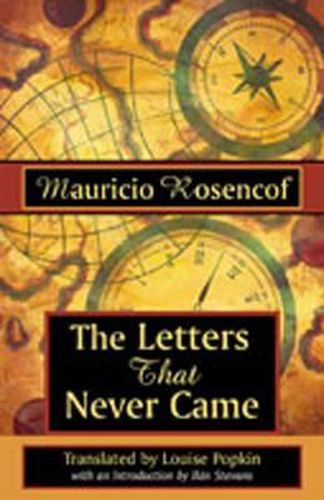Readings Newsletter
Become a Readings Member to make your shopping experience even easier.
Sign in or sign up for free!
You’re not far away from qualifying for FREE standard shipping within Australia
You’ve qualified for FREE standard shipping within Australia
The cart is loading…






This is an autobiographical novel in three parts. Part 1 is a rich evocation of life in a working-class neighbourhood in Montevideo, Uruguay, in the mid-1930s, as seen through the eyes of Moishe, the child of Polish-Jewish immigrants. In what is a daily routine, Moishe’s father waits for the postman at the window, always hoping for news of his family from the Old Country. Don Isaac’s relatives are prisoners of the Nazis, so all he can read Moishe and his mother is letters from before. Interspersed among the child narrator’s reminiscences are the letters those relatives might have written, bearing witness to their suffering. Letters that never came. In Part 2, we find Moishe in the dungeons of the military junta that governed his country through the 1970s and part of the 1980s. Held in isolation, tortured and starving, he takes refuge in the world of his imagination, composing another letter that never came – a letter to his father that embodies his own quest for identity – while his parents, penniless, are evicted from their house and stigmatised as the mother and father of a ‘subversive’. Part 3 of Rosencof’s text is largely a meditation on the redemptive power of the word, real
$9.00 standard shipping within Australia
FREE standard shipping within Australia for orders over $100.00
Express & International shipping calculated at checkout
This is an autobiographical novel in three parts. Part 1 is a rich evocation of life in a working-class neighbourhood in Montevideo, Uruguay, in the mid-1930s, as seen through the eyes of Moishe, the child of Polish-Jewish immigrants. In what is a daily routine, Moishe’s father waits for the postman at the window, always hoping for news of his family from the Old Country. Don Isaac’s relatives are prisoners of the Nazis, so all he can read Moishe and his mother is letters from before. Interspersed among the child narrator’s reminiscences are the letters those relatives might have written, bearing witness to their suffering. Letters that never came. In Part 2, we find Moishe in the dungeons of the military junta that governed his country through the 1970s and part of the 1980s. Held in isolation, tortured and starving, he takes refuge in the world of his imagination, composing another letter that never came – a letter to his father that embodies his own quest for identity – while his parents, penniless, are evicted from their house and stigmatised as the mother and father of a ‘subversive’. Part 3 of Rosencof’s text is largely a meditation on the redemptive power of the word, real